Part 80: Victoria: Chapter 14 - Leadership: 1860 - 1865
1860-1865: Leadership
The Unifiers win a broad majority in the Reichstag, with a weak showing for the Militarists. The disgraced Modernizers manage to win exactly zero support outside their own (shrinking) ranks.

The 1860 Reischtag ends in sad news as Frederick I falls ill and dies on the way back to Stuttgart.

Pressured by the Unifiers, he begins a cautious demobilization of 'excess' troops, eliminating the non-deployed reserve that was created during the Weltkrieg. 300,000 reserve and garrison troops are disbanded and sent back to work in Swabia's agriculture. The size of the standing army, however, remains unchanged.

Swabia's internal strife continues as the growing number of anarchists and radicals among its factory workers riot and revolt.
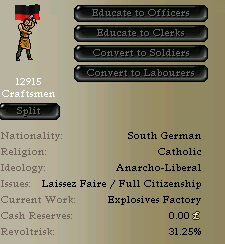
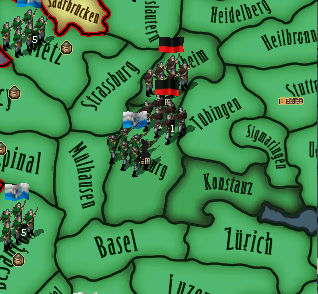
The new steel industries in Switzerland stand ready in April. However, Swabia's domestic demand for steel outstrips their production capacity and an expansion project is funded to address this problem.

Peace is finally settled between the Grand Coalition and the UK in May, with the UK forced to give up its South African colonies to Iberia and one-third of British Siberia to Russia.
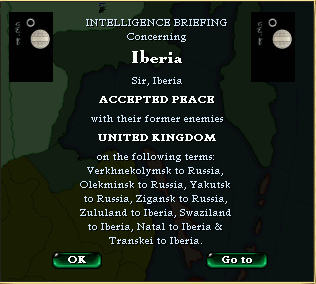
As before, the Unifiers invest a significant part of the technology budget into cultural matters, founding several universities and supporting a new wave of 'realist' artists.
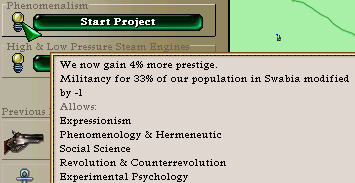

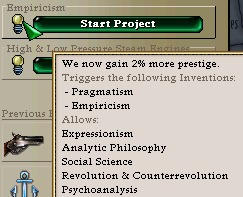

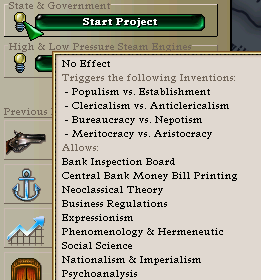
A reorganization of the chain of command begun by the Militarists is completed in June, organizing the army command staff into so-called 'Headquarters' brigades.
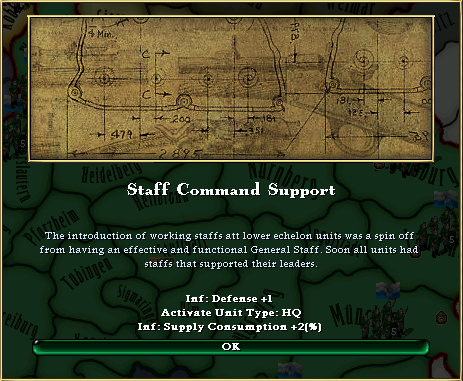
As part of a Unifier attempt to rebuild the war-torn Pommerania, the Pommeranian railways are modernized using state funds.

The world's first steamer shipyard stands ready in Mecklenburg in March of 1861. Although the projected profits for selling these ships to foreign powers are immense, Bismarck passes a law forbidding the sales of steamboats outside of Swabia - the Swabian navy is given first priority.

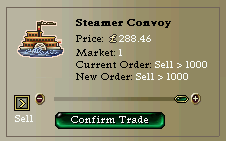
In April, Austria rears its head once more. Frederick I was a weak ruler, but he was also much beloved by the german people for his public support of nationalism and Germanism. With Frederick II a mere nine-year old boy, and Bismarck's reputation in the federations tainted by the massive losses of lives and territory in in the SGF, Austria feels ready to make its move. A decree is drafted proclaiming the NGF an Austrian interest zone, and the Austrian diplomat to Swabia warns Bismarck that Swabia should be content with control over the SGF, unless it is ready for war.
Unfortunately for Austria, this time around, Swabia is more than ready. Swabia declares war on Austria, which is joined by the other three members of the Grand Coalition - Russia chooses to dishonour its alliance with Byzantium and stay out of the war.

A war plan is quickly drawn up - the forces along the western front are to dig in among the new fortifications and repulse any French attacks, while the eastern armies advance quickly on Vienna. It is hoped that by capturing Vienna and humiliating Austria in the eyes of the federations, the war can be settled before Byzantium and Iberia have a chance to mobilize troops to the front.
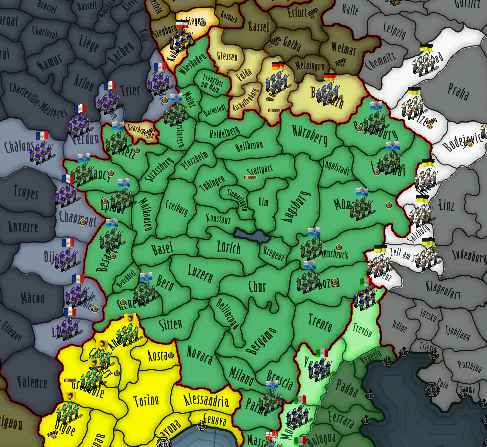
The offensive into Austria begins in the beginning of May.
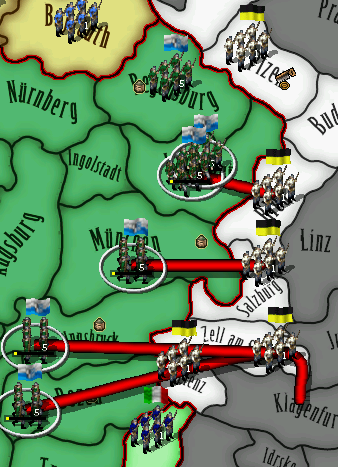
In the west, the 10th army is moved into Kreuznach to close the line against the French.

The federations are approached by both sides, and after some political showmanship, the SGF declares itself for Swabia, while the NGF declares for Austria, opening a third front against Swabia. The 10th army is redeployed to stop NGF troops entering Swabia and the SGF.
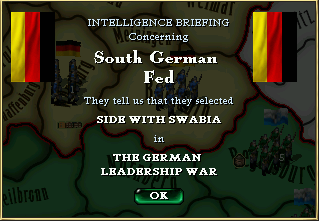
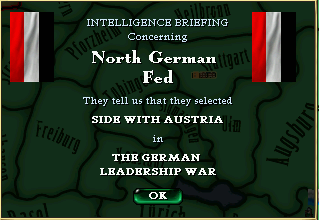
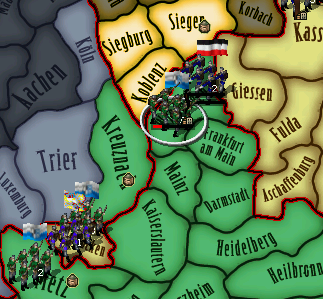
The eastern offensive succeeds in breaking through in the Austrian center, taking Rind. The 3rd, 4th and 5th armies are halted in the south by well dug-in Austrian defenders.
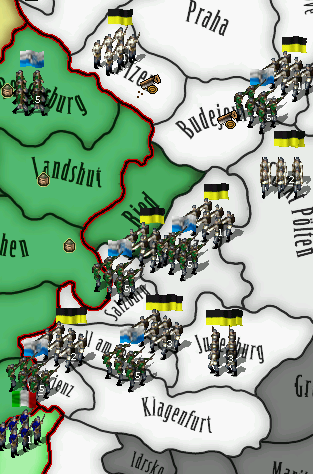
As in so many other wars, is is Swabian Pommern that suffers the worst as Austrian and NGF troops begin to occupy its undefended provinces.
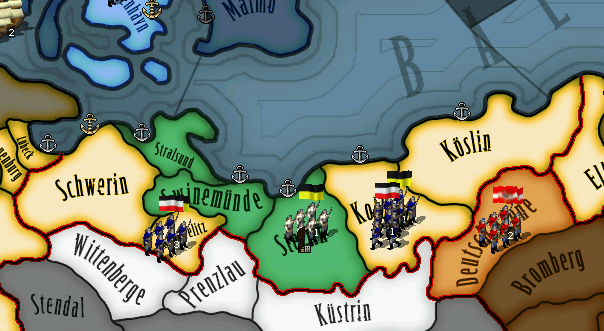
On the eastern front, the Austrians launch a major counter-attack in the south, forcing the Swabian troops to retreat with heavy losses - but in doing so, they leave the way to Vienna open.
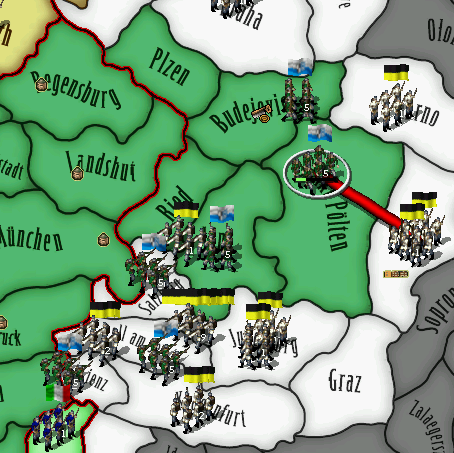
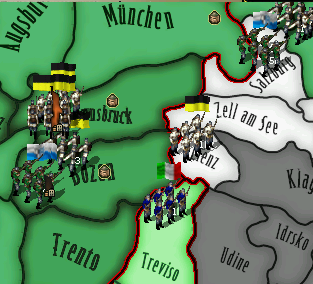
The 8th and 1st armies enter Vienna in August, a mere three months after the outbreak of war, occupying the Royal Palace and Reichstag. Humiliated, the King of Austria sues for peace, accepting Swabian leadership in exchange for no territorial concessions.

The Unifiers move quickly to act on this new authority, securing control over the federations and planning final unification discussions at the next Reichstag in 1880. Additionally, with the SGF unable to effectively defend it, Saarbrücken is transfered to the Swabian crown.

The war has given Swabia the resounding victory it needed, and things begin to ever so slowly settle down on the home front. A wave of cultural gains follows in its wake.
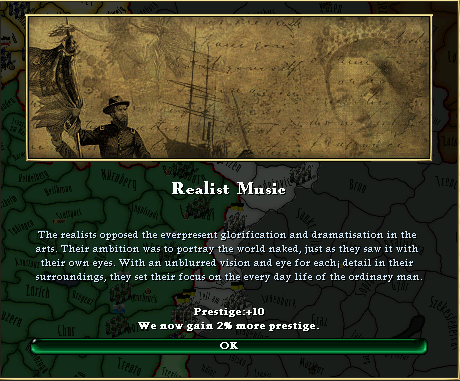

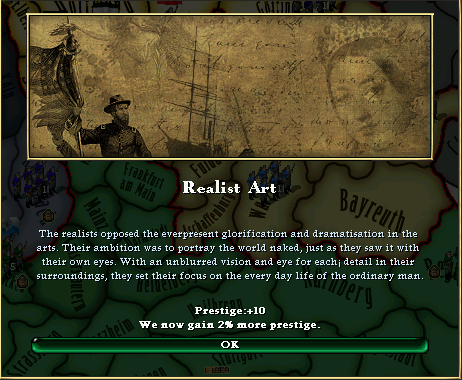

In November of 1862, the new Caliph of Morocco declares war on its former colony Barasya. Barasya's ally Blåland joins the war against the Moroccan aggressors.
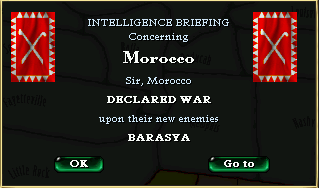
War also breaks out between Russia and the Lithuanian Commonwealth. The Russians make minor gains along the border before their offensive is stalled by dug-in Lithuanian troops.
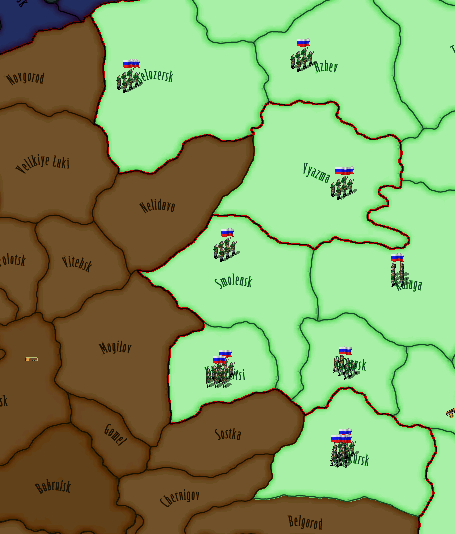
Bismarck continues creating diplomatic ties in the far east to counterbalance Byzantium, setting up a consulate in Teheran and befriending the Persian Shah.

Construction of the new fleet begins in January of 1863, with a steady stream of commerce raiders and steamer transports emerging from the Mecklenburg shipyards.

Morocco invades and occupies Blåland in April, triggering protests from Scandinavia, Vinland and the CCA. Barasya is defeated shortly thereafter, and forced to cede a full half of its territory.
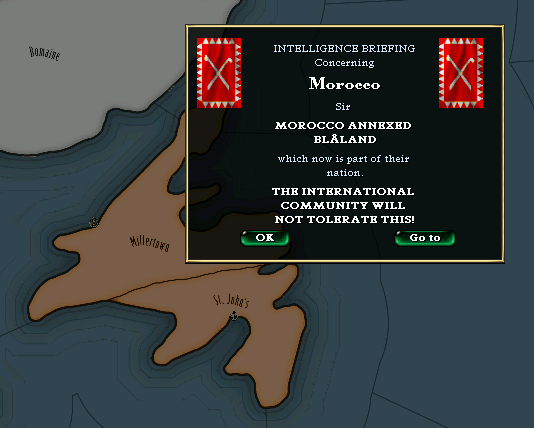
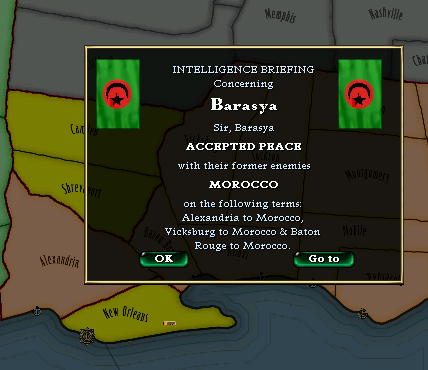
The new fleet stands ready in December and arrives in the Mediterranean a month later. In mock battles with the older wooden warships the commerce raiders have proven to be far superior vessels, and with no other power as yet capable of producing steamboats, Swabia now enjoys a significant degree of naval supremacy.
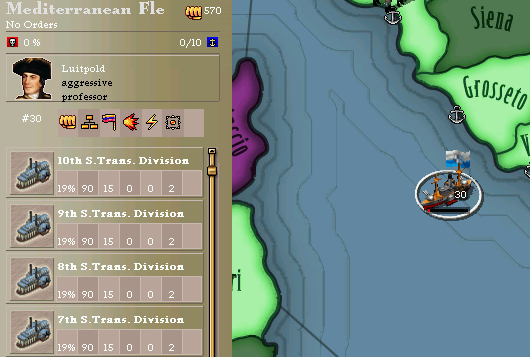
One-third of the old Baltic and Imperial fleets are sent to the colonies to help protect Swabian sealanes, while the rest are scrapped or mothballed.
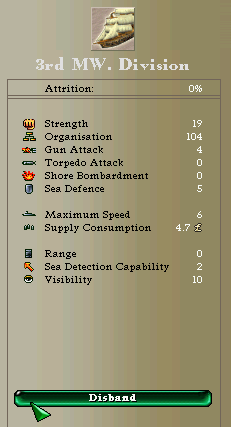
The UK, eager for new territories to replace its losses, invades Manchuria in 1864, taking a large stretch of coastal territory in the ensuing peace.
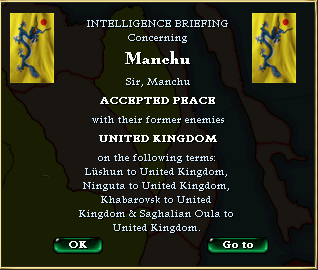
Technological investment shifts from cultural to industrial as import is begun of new steam engine technology.
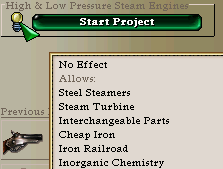
The year ends with a bit of diplomacy, as the alliance with Scandinavia is renewed, and a treaty is signed between Swabia and the NGF to share military and naval technology.

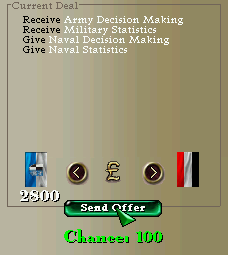
Reichstag - Special Vote
A special session is held in the Reischtag at the end of 1865. With German unification looming on the horizon, there is a sense of need to set down the ideologies and policies that will govern this united Germany - will it be a bureaucracy and meritocratic society like Mazula? Or will it maintain its old aristocratic and nepotistic roots? What of the new anti-religious sentiments spreading among the liberal populace of Europe? Or the national populism seen among the young democracies?
(Writing the rest out of character due to the need to explain what exacty you are voting on)
ATTENTION: Please don't skip the descriptions of the choices even if you've already played Victoria - I've rebalanced the events somewhat so what you think you know may not be how it is!
On account of researching State & Government, there are a few choices to be made that will affect Swabia's future development. They are as follows:
Vote 1 - Populism vs Establishment
Populism vs Establishment determines how POPs vote and is important if we ever become a democracy. Under Populism, POPs will vote based on issues (for instance, if a part of the population cares heavily about anti military they will vote for a anti military party) while Establishment results in POPs nearly always voting down party line - liberals voting liberal and so on. Populism is generally less predictable and stable (and more fun).
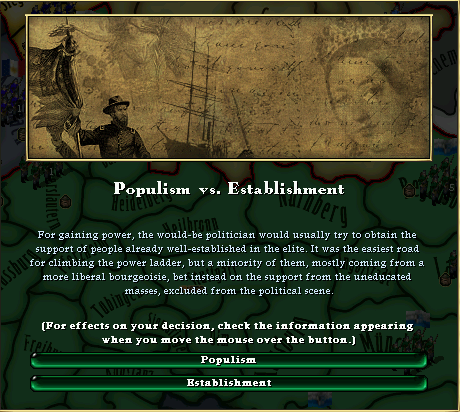
Option A: Populism
Option B: Establishment
Vote 2 - Clericalism vs Anticlericalism
Clericalism vs Anticlericalism has very little effect in game terms - it temporarily sets the dominant issue of 25% of the population to either Moralism or Atheism which in a Monarchy like Swabia does just about nothing. However, in terms of this LP, it will determine the future religious direction of Swabia and Germany - whether it sticks with its old catholic traditions or moves towards a more open and pluralistic society.
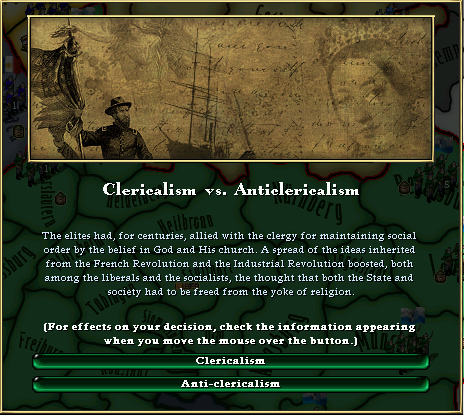
Option A: Clericalism
Option B: Anti-Clericalism
Vote 3 - Bureaucracy vs Nepotism
Bureaucracy vs Nepotism unlocks random events - Bureucracy ones affect your finances and population, while Nepotism ones give you a little money and improve the reliablity of your troops (or create a political corruption scandal). For people familiar with vanilla Vicky, I've rebalanced the effects of these events and made Nepotism better, so its not quite as uneven a choice as in vanilla.
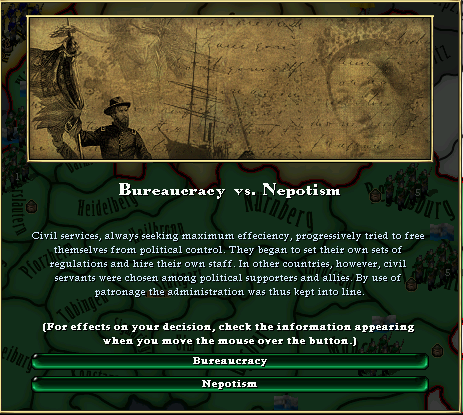
Option A: Bureaucracy
Option B: Nepotism
Vote 4 - Meritocracy vs Aristocracy
Meritocracy vs Aristocracy effectively comes down to choosing between capitalists and aristocracts. Meritocracy will give you cheaper buildings and improve your capitalists' income but lower diplomatic efficiency (number of diplomatic actions you get per year) and aristocrat income, while Aristocracy conversely makes buildings more expensive and capitalists earn more while, while aristocrats earn more and diplomatic efficiency is significantly boosted. Note that once again, I have rebalanced this to make both related events for each always fire, to reduce the negative impact of Aristocracy and increase its positive impact (to make it a reasonable option).
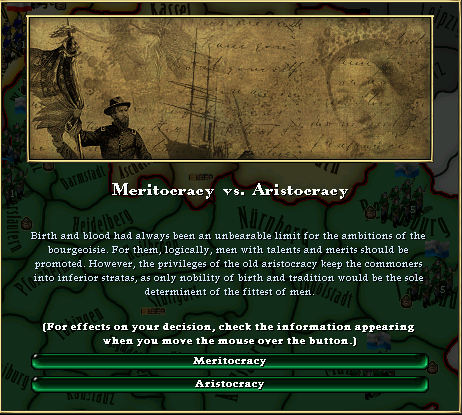
Option A: Meritocracy
Option B: Aristocracy
Well now, that was a lot of words. Go ahead and vote.